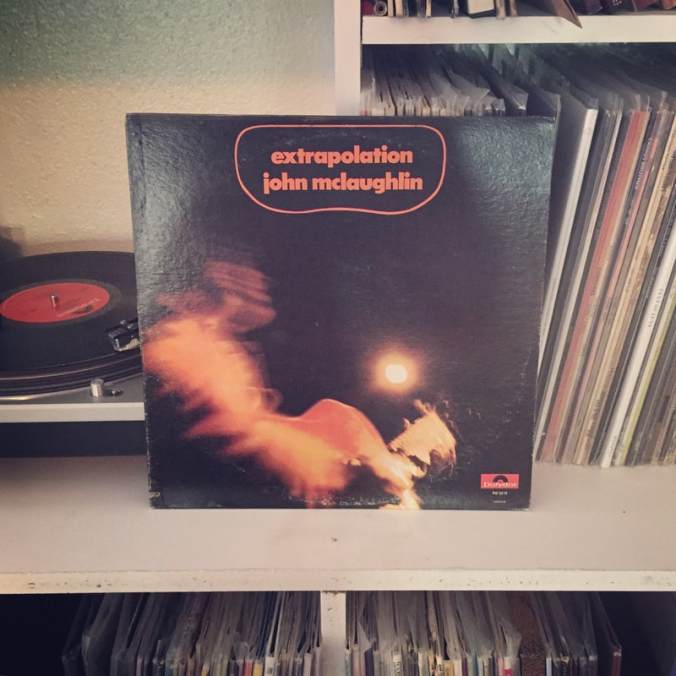His last few albums, Nefertiti, Miles in the Sky, and Filles de Kilimanjaro, found the jazz icon pushing desperately against the conventions of his industry. Nefertiti played with the roles of the traditional jazz combo. Miles in the Sky and Filles saw his rhythm section (including the legend in his own right, Herbie Hancock) moving towards electric instruments.
While writing the masterpiece In a Silent Way, Miles wanted to do something truly revolutionary (spoiler alert: he succeeded)…
But it wasn’t just Miles’ group. John McLaughlin would become a ubiquitous presence in the jazz fusion scene of the 1970s, playing with Larry Coryell, Stanley Clarke, rock giants Jack Bruce and Santana, and leading the power house fusion group Mahavishnu Orchestra.
And judging by this, his debut album, it’s easy to see why he would become such a giant in the scene. This isn’t nearly as out there as most of what he’d go on to make. Save for his electric guitar, this album is played by a traditional jazz combo—upright bass, saxophone, and drums. There are moments that sound reminiscent of a pre-free Coltrane.
Until he comes tearing down his fretboard. His playing is mostly tied to conventional jazz technique, especially on the twin lines he plays with the bari sax. But every once in a while, some rock and roll sneaks in. Some of his parts (”Argen’s Bag” in particular) foreshadow some of the more cerebral post rock acts like Tortoise or Collections of Colonies of Bees.
Often, debut albums from pioneers are little more than a curiosity. They offer glimpses of the genius that is to come, but are still too tied to convention to be satisfying. And in jazz, even the best sidemen have put out mediocre albums as band leaders. But Extrapolation is neither of those. This is a debut befitting his legend.
